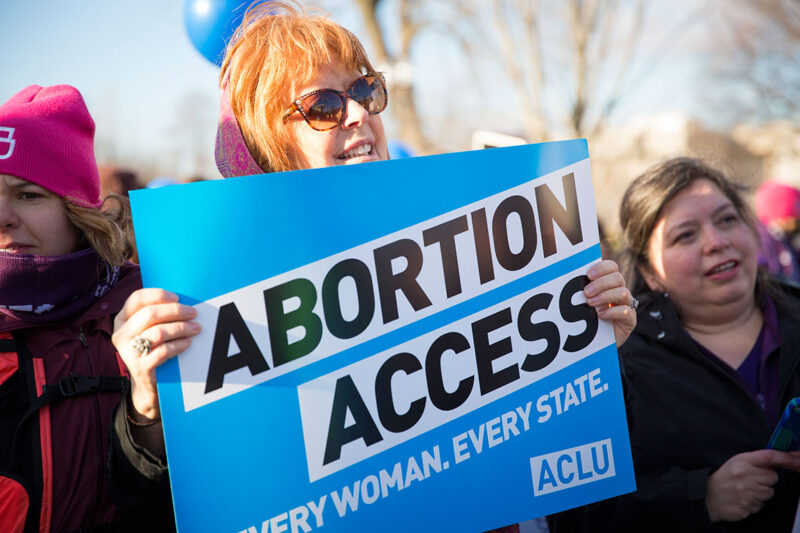The Other Shoe Didn’t Drop on Birth Control Coverage Last Week, But Trump Greenlighted It


The religious exemption executive order that President Trump signed last week was largely smoke and mirrors. But no one should be fooled by the illusion. The executive order paves the way for the administration’s vision for allowing religion to be used as a license to discriminate, including allowing employers to use their religious beliefs to block insurance coverage for their employees.
Here is what’s at stake.
The Affordable Care Act requires women’s preventive health care to be covered without a copay. Congress added this specific provision to the ACA in part because women have historically paid more money for insurance coverage because women-specific services have not been covered by insurance (or not without substantial copays).
The federal government decides what should be included in the women’s preventive bucket. After studying the issue, the Obama administrative decided to include a host of services, such as well-women’s visits, domestic-violence screening, and coverage for all FDA-approved prescription contraception. Those services must be included in all plans covered under the ACA without a copay. Churches and other houses of worship are exempt from the contraception requirement.
When the Obama administration announced the women’s preventive services, some religious organizations balked at the contraception coverage requirement. In response, the federal government created an “accommodation” for nonprofit employers with religious objections to covering birth control. Under the accommodation, employers simply have to fill out a one page form and send it to their employees’ insurance company. The employer is then taken out of the equation. The health insurance company then pays for the coverage.
For-profit companies were not originally included in the accommodation. After a number of legal challenges brought by companies like Hobby Lobby, culminating in a Supreme Court decision, the federal government extended the accommodation to closely held for-profit companies with religious objections to providing contraception.
But a number of nonprofit employers and universities also sued claiming that the accommodation did not go far enough. They wanted a complete exemption — like churches. In other words, they didn’t even want to fill out the simple form. Some of those cases reached the Supreme Court in a case called Zubik v. Burwell. The court didn’t rule on the merits of the case, but it sent them back down to the lower courts to see if the parties could find a compromise. To this day, those cases are sitting in the courts and have not been resolved.
That brings us to last week’s executive order, which ordered federal agencies to “consider issuing amended regulations, consistent with applicable law, to address conscience-based objections” to the women’s preventive services requirement. We are deeply concerned that the federal agencies will mandate religious exemptions to allow countless employers and universities to block their employees’ and students’ coverage for contraception.
By blocking insurance coverage for contraception, these employers and universities will be discriminating against women. Access to birth control is crucial for women’s equal participation in society. Being able to decide whether and when to have children has a direct effect on women’s ability to make their own paths in terms of their schooling, families, and careers. Although religious liberty is a fundamental right, and one we fight for every day at the ACLU, it cannot be used to discriminate against or harm others.
We stood ready to sue on Thursday if the executive order immediately harmed people. We will stay vigilant and wait for the other shoe to drop on birth control, discrimination against unmarried parents, or discrimination against LGBT individuals. do know, for example, that the Trump administration is already signaling that they will roll back regulations that protect women and transgender people seeking health care access from being discriminated against based on who they are. If the other shoe drops, we have our legal papers ready to go, and we will do everything we can to ensure that Trump doesn’t let religion be used as a license to discriminate.

